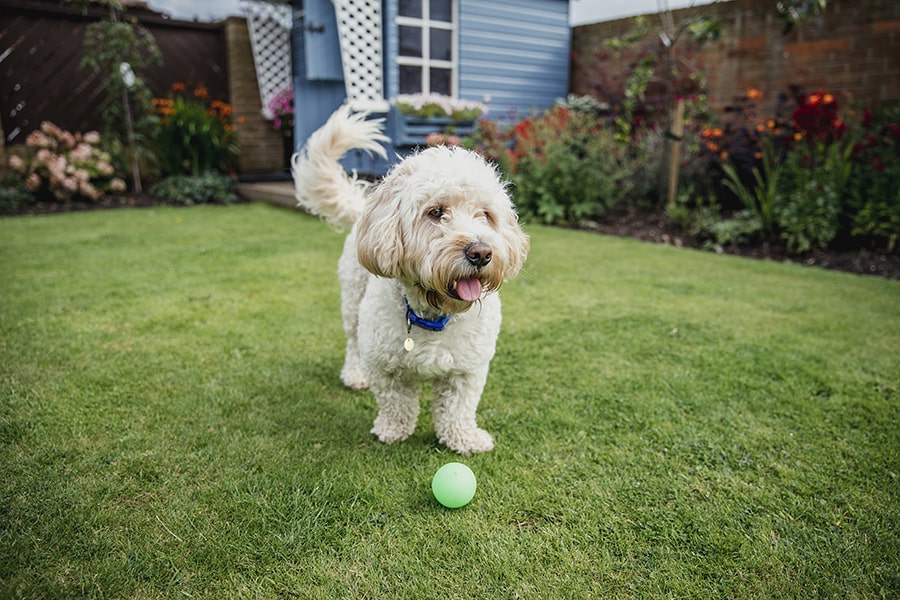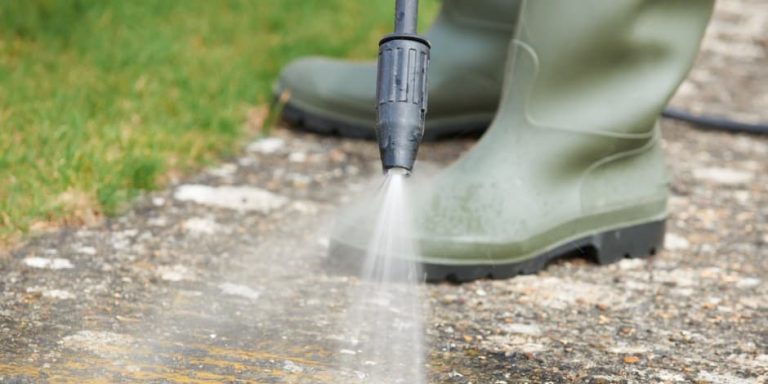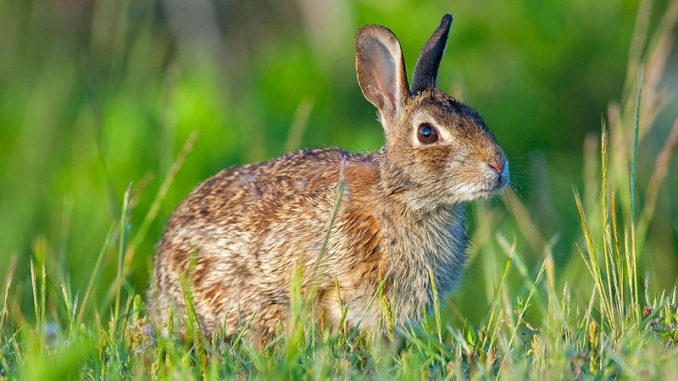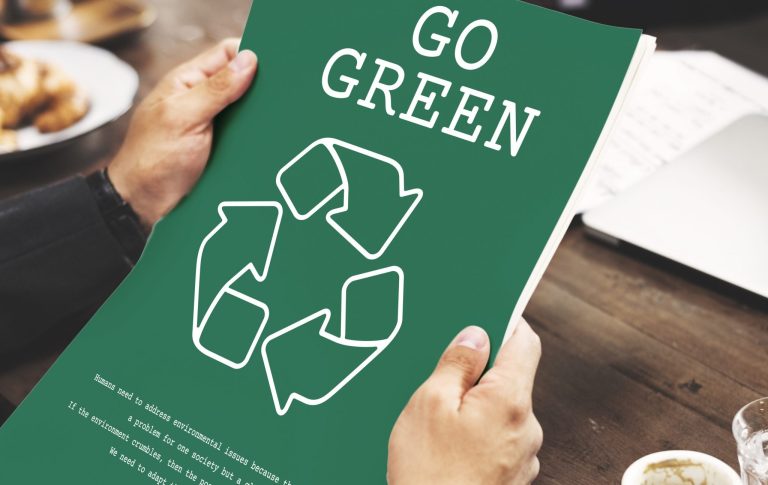
For pet owners, outdoor chores like power washing come with an extra layer of responsibility. While pressure washing can make driveways, patios, and siding look spotless, it can also pose serious health risks to pets—especially if cleaning solutions or water pressure aren’t handled properly.
In this article, we’ll break down the potential dangers power washing poses to pets, offer practical safety tips, and show you how to clean your property without putting your furry friends at risk. 🐶🐱💧
🚨 Why Power Washing Can Be Risky for Pets
Power washing doesn’t seem harmful at first glance—after all, it’s just water, right? Not quite. Most pressure washing involves:
- High-pressure spray (1,500–3,000+ PSI)
- Chemical cleaning agents (some toxic)
- Spray-back and mist that lingers
- Loud noise levels (80–100+ decibels)
Each of these elements can be dangerous or stressful for animals, especially if they’re exposed unexpectedly or repeatedly. Let’s look at the main areas of concern:
🧪 1. Harmful Cleaning Chemicals
Many outdoor cleaners used during power washing contain harsh substances like:
- Bleach
- Ammonia
- Solvents
- Fragrances
- Phosphates
These can be toxic to pets if inhaled, absorbed through paws, or ingested—whether directly from a surface or from licking their fur after walking through residue.
Even “mild” household cleaners may cause:
- Vomiting
- Diarrhea
- Skin or eye irritation
- Seizures in extreme cases
⚠️ Warning: Cats are especially sensitive to many chemicals due to how their livers metabolize toxins.
Browse Amazon Here For Popular Pet-Safe Disinfectant Cleaners
🔊 2. Noise and Stress
Gas-powered washers can produce decibel levels comparable to a lawnmower or small engine. This can cause significant stress or even hearing damage to pets—especially dogs and cats with sensitive ears.
Signs of power washer–induced stress include:
- Hiding or shaking
- Barking or whining
- Pacing or trying to escape
- Destructive behavior
In some cases, animals may develop long-term anxiety associated with yard activity or cleaning tools.
💦 3. Spray-Back and Overspray
Pets that wander into a recently washed area may be exposed to spray residue, wet surfaces, or even direct hits from low-aimed nozzles. High-pressure water can easily cause:
- Paw pad injuries
- Cuts or bruises
- Eye damage
- Sudden temperature shock
Even a soft-pressure rinse can be dangerous for small animals like rabbits, ferrets, or cats.
🍽️ 4. Contaminated Surfaces and Puddles
After washing, contaminated puddles may remain in uneven areas. Curious pets may drink from or walk through them, exposing themselves to:
- Chemicals
- Oil or grease from driveways
- Mold or algae
- Bacteria from bird droppings or feces stirred up by the spray
Without proper drying or containment, even a clean-looking area can be unsafe for hours afterward. 🧫🚫
✅ How to Keep Pets Safe While Power Washing
Keeping your furry friends out of harm’s way doesn’t mean skipping your cleaning routine—it just means planning ahead. Here are pet-safe best practices every homeowner (or contractor) should follow:
🏠 1. Secure Pets Indoors
Before you begin, bring all pets inside and close doors, windows, and pet flaps. Keep them in a quiet, enclosed space away from the noise and commotion.
⏱️ 2. Schedule Around Their Needs
Try to wash at a time when your pet is least active—like early afternoon for dogs who nap midday. Avoid early mornings or evenings when they may be outside playing.
🧴 3. Use Pet-Safe Cleaning Products
Look for labels that say:
- “Pet and plant safe”
- “Biodegradable”
- “Phosphate-free”
- “Non-toxic”
Examples include:
- Simple Green Pet-Safe Outdoor Cleaner
- ECOS Pet-Safe Wash
- DIY mix of vinegar + water (for mild cleaning)
Never use bleach, ammonia, or products with synthetic fragrances around pet areas. 🧼
🧽 4. Rinse and Dry Thoroughly
After washing, do a clear-water rinse and dry the area with towels, leaf blowers, or air circulation before letting pets return outside. Watch for slippery surfaces.
🚧 5. Block Off Cleaned Areas
Use barriers or fencing to prevent pets from walking through freshly cleaned zones for several hours. If that’s not possible, keep them leashed and supervised.
🎧 6. Minimize Noise Exposure
Electric power washers are quieter than gas models and better for homes with animals. You can also:
- Wear ear protection yourself
- Run a white noise machine indoors
- Keep pets in interior rooms or use calming music
🐾 Outdoor Areas to Be Extra Cautious With
Certain parts of your property are more pet-sensitive than others:
- Dog runs or play areas: Avoid chemicals here altogether
- Patios with water bowls or toys: Remove items before washing
- Grassy spots: Wash without detergents, and rinse well
- Decks with shade or bedding: Ensure everything is clean and dry before returning items
If you’re cleaning kennels, crates, or pet furniture, use mild soap, low PSI, and a full rinse cycle to avoid leaving behind residue.
👷♂️ Tips for Contractors and Pros
If you offer pressure washing services, pet safety can become a competitive advantage. Here’s how:
- Ask clients if they have pets
- Use eco-friendly, pet-safe cleaners by default
- Include pet precautions in your service checklist
- Train your crew to watch for animals and communicate with owners
- Offer “quiet time” options using electric washers for pet-heavy households
You’ll earn more trust and potentially more business just by showing empathy toward animals. 🐕💼
🌿 Final Thoughts
Power washing can transform your outdoor space—but it doesn’t have to come at your pet’s expense. With a little awareness, the right products, and some simple precautions, you can maintain a sparkling property and a safe environment for your four-legged family members. 🐾🧼
Because a clean home should be safe for everyone—humans and animals alike. 🐕🐈💚
Browse Amazon Here For Top Rated Power Washers And Accessories






